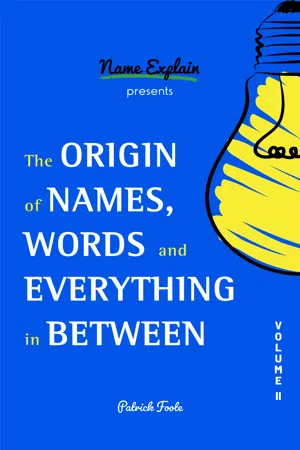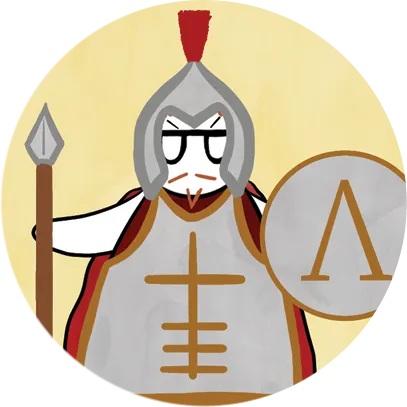The world as we know it today hasn’t always been this way. Our blue ball has been floating in space and has changed dramatically over the years. Borders that once existed on maps have been erased and redrawn; grand cities that once stood are now rubble; and even the land we walk on has split apart, merged, and moved across the planet. In Volume I, we spent a good amount of time looking into the names of places on our planet; this time around, I want to step back in time and marvel upon the historical places on our planet that are no longer here, or at least don’t exist in the same way they did at the peak of their power. The names I have chosen here include former countries, cities, regions, and empires ranging from the not-too-distant past all the way back to before we humans were even here.
Mesopotamia
This is quite possibly the most important place in human history. Often known as the “Cradle of Civilization,” Mesopotamia is where we humans stopped being hunter-gatherers and started forming societies like the ones we know today. The wheel, math, and writing are all inventions of those who lived in Mesopotamia. Life was able to kickstart in such a way here due to a variety of factors, including the fertility of the soil in the area and the climate. Parts of the modern nations of Iraq, Iran, Kuwait, Syria, and Turkey in Western Asia on the cusp of the Arabian Peninsula are where Mesopotamians resided.
Mesopotamia wasn’t a single kingdom or nation, but rather the name for the land various tribes and people thrived in, such as the Babylonians and Sumerians. They for sure didn’t call the land Mesopotamia either. It’s a name given to the land retroactively by the Greeks, so it’s of Greek origin. As mentioned, the people of ancient Mesopotamia could thrive because the soil there was so darn fertile, meaning farming could be achieved. The reason this soil was so good to farm on was because Mesopotamia resided between two rivers that enhanced the soil there—these two rivers being the Tigris and Euphrates. Its position in the middle of two rivers is why it now has the name Mesopotamia, as this name comes from the Greek words of meso, which means “middle,” and potamos, meaning “river,” so the name simply means “land in the middle of rivers.” This Greek meso is seen in names of other parts of the world too, like the name Mesoamerica which we use for the land in the centre of the continent of the Americas.
Yugoslavia
This nation existed twice on our planet, first from 1918 till 1941, and then again from 1945 all the way till 1992. It’s intentional that those dates line up with the World Wars, as Yugoslavia was officially created in the immediate aftermath of the First World War. During the Second World War, it was claimed and split up by the Axis powers, only for it to reemerge at the end of the war. The nation lasted all the way until the early 1990s, and in its place today lie the nations of Slovenia, Croatia, Bosnia and Herzegovina, Serbia, Montenegro, Kosovo, and North Macedonia. What connects all these nations? (Well, minus once all being one large nation, of course.) It’s their language and their people, all being South Slavic. While the nation only existed in the twentieth century, the idea of one large country containing all the South Slavic people dates back hundreds of years. This should explain to us where the Slavia part of the name comes from. That ever-present -ia suffix means “land of the,” so this can be seen as meaning “land of the Slavs.”
Why Yugo, however? These four letters don’t appear in any of the names of the nations that now exist, so where did it come from? Well, remember I mentioned Yugoslavia was specifically for Southern Slavs? This Yugo part relates to their southerly location. It’s worth mentioning here that South Slavic is different from North Slavic; North Slavic (which is often split into East and West Slavic) includes the likes of Russian, Polish, and Czech. Anyway, Yugo comes from the Old Church Slavonic jugu, which means “south.” Combining this with the aforementioned Slavia shows us that the name as a whole means “land of the Southern Slavs,” which is fitting as that was exactly what this country was.
Prussia
Prussia was a kingdom within the German Empire. A kingdom within an empire, that’s some pretty impressive stuff right there. While the German Empire started life in 1871, the Kingdom of Prussia outdated the empire that would consume it, being formed in 1701. However, both the German Empire and the Kingdom of Prussia would cease to be in 1918, once again in the aftermath of the First World War. What was once Prussia doesn’t neatly fit into a modern country or two, but instead, parts of former Prussia now reside in parts of Denmark, Germany, Belgium, Czechia, Poland, Russia, and Lithuania.
The name of Prussia is believed to derive from a tribe of people who once lived in the land that Prussia once resided in, especially the area approximately around the Baltic Sea. These people are known as either the Old Prussians, Prūsai, or Prusi. Where their name came from, however, we don’t seem to be sure. Ideas link it possible to geographic roots relating to the many bodies of water in this region of the world. Though once Germanic people rocked up and took over this land, they clearly liked the name enough to keep it.
Now, I am aware of how much this name sounds like Russia; it’s still a debated topic as to whether these names are linked or not. A lot of people seem to chalk it up to coincidence, as we seemingly know that Russia was named after the Rus people. Though these Rus people did live in close proximity to the Old Prussians, so perhaps there was some intermixing. One idea even claims that the name Prussia comes from the old Slavic po-rus, which means “land near the Rus,” so maybe these names are more connected than we thought.
Sparta
We all have an image of ancient Greece in our head: the robes, buildings lined with columns, gods, and monsters ruling over all of us. Yet, despite this, ancient Greece wasn’t a singular place. It’s not like it’s just the modern nation of Greece but a few thousand years ago. At the time of ancient Greece, which is thought to be from around the twelfth century BC to around 600 AD, it wasn’t just one country. Instead, the land of ancient Greece was split between small city-states. Each of these cities ruled themselves, and they didn’t all get along at the best of times. Some of these city-states include Athens (which is still the nation’s capital), Corinth, Olympia, and perhaps the most well-known of them all, Sparta.
The city-state of Sparta is best known for its military might, fearsome soldiers, and their blunt, to-the-point way of speaking. Spartan boys started training at the age of seven, and qualities such as discipline and endurance were drilled into them. We all know the story of the three hundred Spartans and their battles against the Persians. War and battles were the top priorities of the Spartans, and their city-state lasted from the 900s BC to 192 BC. While we know a lot about their battles, as to where their name comes from, we aren’t too sure. There are a few ideas I dug up in regards to its origin. One idea has it relating to ancient words meaning to sow/spread, as the land in the city was fertile; this etymology ties the name Sparta into the adjective of sparse, which means scattered. While another idea is that it came from the Greek sparte, meaning a “type of cord,” it’s thought that maybe this cord was used to define the city’s boundaries. Ancient writer Homer called Sparta “the country of beautiful women,’’ though I think that was more his personal idea than its actual etymology.
The Spartans and ancient Greeks, however, only called the precise city Sparta; we use that name for the surrounding area as a whole now. They called the land where Sparta was a whole Lacedaemon/Laconia. While we don’t know where this name came from exactly, what we do know is that it created the adjective of laconic, which means to speak in a blunt way, much like the blunt precise language the Spartans themselves used.
Manchukuo
Once upon a time, this country resided in an area that now makes up a part of modern-day China. It existed in one form or another from 1932 to 1945 and was a puppet state. What’s a puppet state? Well, without this book diving too much into the nitty-gritty of politics and empires, a puppet state is a nation that is officially independent but behind the scenes being controlled by a higher power. The higher power in this case being the Kingdom of Japan. Japan formed this puppet state as something of a distraction, to divert eyes away from their other actions and to formally lay claim to land in what is now northeastern China.
This area of the world already somewhat bears this name. Manchuria is the English language name for this northeast corner of Asia, which now homes part of China and Russia. The name for this area derives from the Manchu people who live in the area. Their name is thought to mean “strong arrow” by some scholars, perhaps in relation to their weapon of choice. How we got Manchukuo is kind of long winded. In Japanese, the land was called Manshūkoku, which, in Mandarin, was pronounced Mǎnzhōuguó, and then this Mandarin name was romanised (which means to put a word into the Latin alphabet) into Manchukuo as we know it.
Bohemia
The historic region of Bohemia now makes up the western half of the nation of Czechia. Throughout its existence, Bohemia was its own independent principality and parts of other empires like the Holy Roman ...

